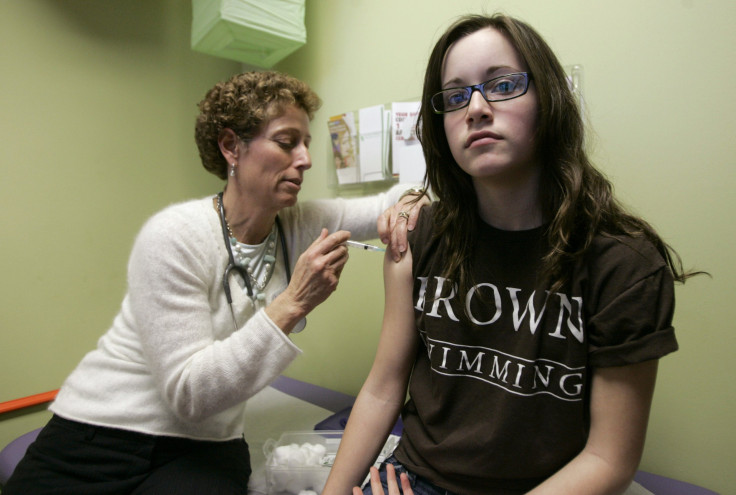Are Loose HPV Vaccine Laws Fallout From Anti-Vaxxer Controversy? Only 2 States Require Teens Get Shots

Currently just two states, Princeton researchers find, require the human papillomavirus (HPV) vaccine for teens. This number is far lower than state requirements established for two other vaccines, one associated with sexual transmission (hepatitis B) and one linked to infection (meningococcal conjugate), their new study notes.
State requirements for HPV vaccination “may reflect reluctance among states to revisit the contentious political climate surrounding requirement proposals in 2006-2007,” wrote the authors in a published research letter. “The novelty of the 3-dose HPV vaccine series in the adolescent schedule may present additional challenges.”
The first HPV vaccine was approved in 2006, and recommendations soon followed. In 2013, nearly 38 percent of teen girls and about 14 percent of teen boys had completed the three-dose series, according to the Centers for Disease Control and Prevention (CDC). Such data clearly reveals vaccination coverage is substantially below the Healthy People 2020 target of 80 percent. Though requirements were discussed following the approval of the HPV vaccine, advocates argued an implementation period — focused on supply, safety, financing, and education — would be warranted for the new vaccine and so any immediate requirements would be premature.
So, what has transpired since that time eight years ago?
Dr. Jason L. Schwartz and Dr. Laurel A. Easterling, both of Princeton University, looked at the timing of any state requirements for vaccines relevant to teen health. They studied new shots that have been added, by the CDC, to the recommended vaccination schedule since 1990: hepatitis B, varicella (chickenpox), meningococcal conjugate, and HPV.
Only Virginia and D.C. required HPV vaccination as of March 2015, with Rhode Island scheduled to come on board in August 2015, the researchers discovered. In comparison, requirements were more common for the hepatitis B vaccine (47 states and DC), varicella vaccine (50 states and DC), and meningococcal conjugate vaccine (29 states and DC). Hep B, a virus causing serious liver damage, is passed through blood, semen or other body fluids. Meningitis, an inflammation of the thin tissue that surrounds the brain and spinal cord, is most common in infants, teens, and young adults.
Extending the comparison, the researchers found that at a corresponding point in their histories — eight years after an official CDC recommendation — hepatitis B vaccine had been required in 36 states and DC, varicella vaccine in 38 states and DC, and meningococcal conjugate vaccine in 21 states and DC.
“School requirements are a mainstay of US vaccination policy, widely used by states to promote high vaccination rates,” noted the authors in their study. “Attention to their potential value has been largely absent from recent discussions of strategies to improve HPV vaccination rates.”
Source: Schwartz JL, Easterling LA. State Vaccination Requirements for HPV and Other Vaccines for Adolescents, 1990-2015. JAMA. 2015.
Published by Medicaldaily.com



























